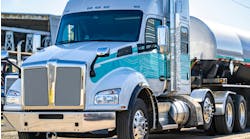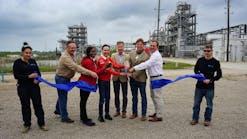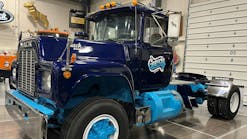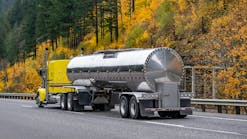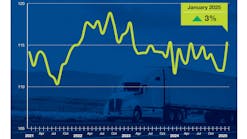ATA’s Technology & Maintenance Council (TMC) and FleetNet America presented an executive summary of unscheduled roadside repairs. The data covered the truckload, less than truckload (LTL), and tank industry verticals from April through June (Q2) 2020.
Highlights
Across the three verticals, participating fleets operated 38,474 miles between unscheduled roadside repairs. The average fleet spent $522 per mechanical roadside repair, excluding tire repairs or towing events. This represented the highest average since the inception of the vertical benchmarking program.
Truckload vertical
Miles between breakdown increased 61 percent between Q1 and Q2. The 23,990 miles between breakdown average is a record high for the truckload vertical for the benchmarking program.
The average cost of mechanical roadside repair for the truckload vertical was $350; this cost excludes tire repairs and towing events. The program data indicated that the average cost of roadside repair in this vertical has been trending down over the last year.
Six VMRS systems represented 76 percent of the unscheduled roadside repairs for the truckload vertical.
LTL vertical
The LTL vertical averaged 53,802 miles between breakdown, relatively similar to Q1 2020 and Q4 2019.
The average cost of mechanical roadside repair for the LTL vertical was $741; this cost excludes tire repairs and towing events.
Five VMRS systems represented 73 percent of unscheduled roadside repairs for the LTL vertical.
Tank vertical
The average miles between breakdown for the tank vertical was 22,739. This was similar to Q1 2020, but less than half compared to Q4 and Q3 2019.
The average cost of mechanical roadside repair for the tank vertical was $459; this cost excludes tire repairs and towing events.
In Q2 2020, the tank vertical increased miles run between repairs in the five most frequently repaired VMRS systems.
The program
The TMC/FleetNet America vertical benchmarking program is a member benefit provided by TMC. The benchmarking program is designed to help TMC’s members better understand reasons behind unscheduled roadside repairs and identify opportunities to refine and improve their maintenance operations.
Participating carriers agreed to provide all of their unscheduled roadside repairs to a common data warehouse. The repairs were accurately VMRS coded by facilities authorized by TMC. FleetNet America built and maintains the data warehouse and provides participating fleets with a web-based business intelligence tool that allows each fleet to drill into their data to see how it compares to the cohort average.
